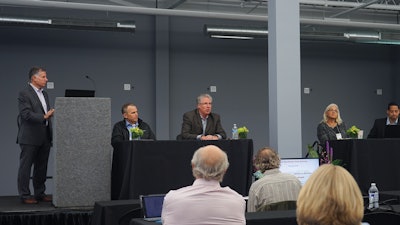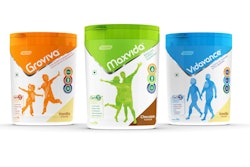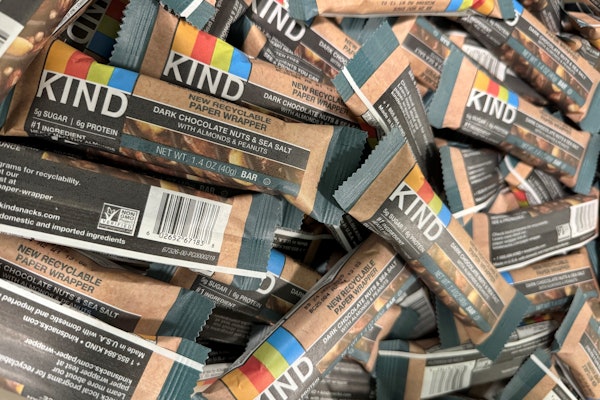How are marketplace and technology trends changing the way brands approach outsourcing? At a late-September panel discussion, brand leaders and mangers of contract services predicted how their businesses will change based on recent technology and outsourcing trends.
Kevin Hall, Senior Vice President for Business Development at contract packager and supply chain services provider Coregistics, moderated the panel at the Uber Revolution Pack Summit, hosted by the Contract Packaging Association (CPA) and Frain Integration. The event’s title reflected these trends in light of the rise of companies such as Uber and Airbnb, which have disrupted their sectors—taxicabs and hotels, respectively—in an Internet-enabled vision of a new, “shared” economy. Likewise, in the manufacturing sector, the Industrial Internet of Things (IIoT), which incorporates new uses for cloud and mobile computing, Big Data, and more, is seen as enabling—and requiring—new solutions for supply chain management, human resources, and more by these panelists:
• Todd Caraway, Director of Contract Manufacturing Procurement for Continental Mills, owner of brands including Krusteaz pancake and baking mixes and Kretschmer Wheat Germ; and partner in licensed brands including Ghirardelli chocolate brownies and Red Lobster biscuits.
• Rick McDonald, Vice President for the International Supply Chain at The Clorox Company, the $5.8 billion-a-year maker and marketer of brands including its namesake bleach, Pine-Sol cleaner, Hidden Valley Ranch dressings, and Kingsford charcoal.
• Mike Brodie, Director of Contract Manufacturing Partnerships for Torani, best known as the leading brand of coffeehouse beverage flavorings, and a unit of The Clorox Company.
• Diane Wolf, a food and beverage consultant with more than 30 years of food industry operations, engineering, and supply chain experience at organizations including Kraft Foods and Procter & Gamble.
Amid consumer changes, brand marketers are still wrestling with the challenges of connecting with consumers, whose direct relationships and transactions are primarily with retailers.
Clorox’ McDonald cited the difficulty of corralling consumers’ attention as they take-in information from all manner of sources, for better or worse, that influence their purchasing behavior. The online marketing game, he says, is undergoing a radical change in the Digital Age. Today, Clorox has a “whole group of social media specialists” tasked with managing brand messaging and relationships.
From far-flung connectivity to matters of literally addressing consumer tastes, Torani’s Brodie said the biggest challenge for the next few years is finding better ways to predict fast-paced changes in taste. “The beginning and end of sriracha went so quickly,” he said, citing the rapid shift from that spicy-hot flavoring among Millennials to a new affinity for matcha tea, which claims health benefits.
Labor, low- and high-tech
The concept of shared resources and responsibilities is generally well understood in areas spanning manufacturing, maintenance, and transportation resources. But what about labor? Temporary staffing has been a mainstay for most contract packagers and manufacturers for handling promotional and seasonal spikes. Based on her experience, Wolf said it’s an ongoing challenge for brands to “use other folks’ labor to allow flexibility.” But she added that food quality and safety compliance requirements may limit how much more “Uber-like” the food and beverage industry can become. “Maybe it’s because I’m not a Millennial, but I can’t get my head around the concept of a totally flexible workforce. It’s much more important to have an engaged, highly capable select few that will help drive value from the data in our factories versus having people show up today, and they don’t have to be there tomorrow.”
That said, large organizations including the $5.8-billion Clorox maintain a third-party shared services model to execute on sourcing, planning, logistics, and manufacturing plans. “We pretty much outsource our logistics, from warehousing to transportation. Also, at our manufacturing plants—and this is true in the U.S. as well as international factories—we’ll have multiple companies that are performing some part of the operation for us,” said McDonald. “Where it gets a little bit tricky is when you have heavily unionized labor,” especially where there are multiple unions, and one alone can shut down operations in the case of a dispute.
In the U.S., he added, Clorox has “gone through a process of really ‘leaning-out’ our manufacturing lines,” automating and shoring-up processes to the point where high-speed lines that used to run with up to 10 people now require only two. Contract labor is reserved for lower skill-level jobs.
Going forward, Wolf agreed, food and manufacturing plants will no longer “throw labor at things.” Instead of having “100 people on a [Kraft] Lunchables line…picking up stacks of pre-sliced meat and pre-sliced cheese,” pick-and-place robots are already becoming commonplace.
Brodie isn’t sure how far co-packing will evolve to resemble the likes of Uber, but he acknowledged the need for consistent management across in-house and outside suppliers. He adheres to a philosophy of “contribution management” for reviewing team members in-house as well as for contract manufacturers, who are evaluated periodically using a scorecard. “They have to meet certain criteria, and we have a review. …We try to empower the team member, the importer, whoever that is, who comes in contact with the company,” he explained.
Attendee Tom Landry, a CPA director and President of Allegiance Staffing—who himself presented at the event—sounded one warning bell: Client satisfaction has taken a nosedive in the past five years. “There’s a total disconnect between the people who actually have to use the [outsourced] staffing solution and the people who buy it. …You can’t buy people the way you buy a forklift.” Unlike mechanical assets that have a more readily calculable total cost of ownership, the solution for managing people is to establish mechanisms for greater accountability, partnerships, and data sharing between corporate procurement and operations managers in need of temporary staffing.
More, better data
Plant floor data no longer exist in walled-off systems. Whether manufacturing is in-house or managed across outsourced locations, the manner in which technology is deployed will make the difference between the competitiveness of companies and whole industries.
One of the greatest supply chain challenges in the next three to five years, said Wolf, is that at present, “what’s possible actually exceeds most companies’ ability to do it.” She cited General Electric for its leadership with implementing solutions that tap into the Industrial Internet of Things to perform remote monitoring and real-time predictive maintenance on jet engines—while planes are in the air. In contrast to GE, packaging equipment manufacturers can, but don’t connect with their customers as they should. “All of those things are possible,” she said, “but we still fly service guys from Germany when there’s a problem with a pouch machine.” That said, customers and suppliers of all kinds can start planning to connect for better remote diagnostics, root-cause analysis, preventive and predictive maintenance, and more.
No matter how high-tech an initiative, it still takes management foresight to enact. But most companies in manufacturing and packaging are so busy trying to do more with less that they lack the foresight to see the the long-term benefits of technology. In turn, they fail to make the strategic investments needed to “do more” to gain an edge, according to Continental Mills’ Caraway, who manages 20 contract manufacturers engaged in producing dry baking mix, snack, and beverage products.
Since he entered the field in 1990, Caraway said he’s seen typical strategic planning windows shrink from three to five years out, to a year or less in many cases. That’s something he said, will have to be reversed if brands and their outsourced service suppliers are to capitalize on the emerging, shared economy.
The e-tail transformation
Asked what changes brands will see in the next three to five years, Brodie said he’d be part of a leaner company making greater use of contract manufacturing. “We’re not going to open another bottling plant; we’re not going to make anything else other than our core product; we’re going to contract everything.” he said. This includes greater use of information technology to help “engage the customers, and blow them away—we’re going to know more about them than they know about themselves.” Mobile app-enabled consumers will “know where a bottle of Torani is on the shelf before they get out of their car.”
Caraway foresees a lot more direct-to-consumer e-commerce, based on the success of online e-tailers such as Amazon. Operationally, he said, manufacturing operations will be based on “a combination of strategies that will require a network for external manufacturing.”
Other speakers noted the importance of greater online sales and direct-to-consumer distribution. This is a particularly daunting challenge, especially for some of Clorox’ products. “If you think about liquid bleach, people do buy that on the web, interestingly enough,” said McDonald. “But us getting it there in an engineered case with six bottles per case is really different from shipping a single bottle along with some other stuff to the consumer’s home.” Finding an effective packaging solution for bleach and Clorox’ many other household goods is a daunting challenge, he conceded, “So we’re going to look a lot different in that space, we’re going to move quickly in that area, and we think that’s a big opportunity for us going forward.”
Contract packagers and manufacturers will remain vital players in supply chain management for another reason: enterprise risk management. “There will be another catastrophe,” said Wolf, whether a terrorist attack, plant explosion, or “just” a hurricane. While shying away from a firm prediction, she strongly advised brand owners to manage asset diversity wisely, with contract manufacturing and packaging likely to continue to play a critical role.


























